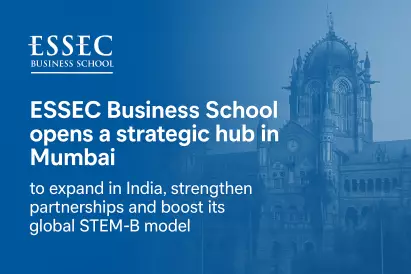Summary: Graduate education in Brazil is undergoing significant transformation in 2025. This detailed guide explores trends in curriculum innovation, digital learning, internationalization, funding, and student expectations—all contributing to the growing importance of master's degrees in a modern economy.
The Role of Master's Degrees in Brazil’s Economic Evolution
Master’s degrees in Brazil in 2025 play a crucial role in bridging higher education and evolving labor market demands amid a dynamic socioeconomic landscape.
As Brazil moves toward moderate economic growth with an expected creation of 1.2 to 1.5 million formal jobs in 2025, mastery-level qualifications are increasingly vital for gaining access to specialized roles, particularly in service sectors, technology, and infrastructure development.
This context underscores the growing importance of master’s education as a leverage point for career advancement and economic participation.
Key Trends Shaping Master’s Degrees in Brazil for 2025
Shifts in Fields of Study: There is a shift toward tech-driven disciplines such as AI, digital business, biotechnology, and sector-specific innovations. Interdisciplinary programs that combine technology with areas like health sciences, management, or environmental studies are on the rise to support sectors like infrastructure, services, and clean energy.
Interdisciplinary and Flexible Programs: Brazilian universities are increasingly offering flexible and cross-functional curricula to prepare students for the complexities of modern jobs. These programs emphasize problem-solving and adaptability, key competencies in emerging sectors.
Digital, Online, and Hybrid Delivery: By 2024, almost half of Brazilian higher education students were enrolled in distance-learning programs. Online and hybrid models using virtual learning environments and AI-adaptive tools have become the norm, making education more accessible to remote and working students. This evolution supports fields like information systems management.
Internationalization and Global Access: Global cooperation is another defining trend, with increasing partnerships between Brazilian and international universities.
English-language programs and the demand for cross-border competencies echo the country's growing global educational footprint. Students in fields such as international management benefit greatly from this trend.
Financial Landscape: Tuition, Funding, and Scholarships
Public universities in Brazil generally provide tuition-free education to domestic and many international students.
This policy, embedded in the national constitution, ensures broad access.
However, private institutions—which account for a substantial portion of enrollments—charge tuition fees. They are expanding digital offerings to cut operational costs and appeal to cost-conscious students.
Government funding through agencies like CAPES remains a key scholarship source, although recent cuts have pressured alternative funding options.
Students in programs like corporate finance increasingly seek private or international scholarships to sustain their academic pursuits.
Evolving Student Expectations and Demographics
Students are no longer seeking only academic theory—they crave applied skills, professional networking, and adaptable schedules.
The digitalization of higher education has opened access to rural and underserved populations, while the competition for research opportunities drives many to study abroad.
Programs like entrepreneurship benefit from these changing preferences by offering hands-on experiences and global exposure.
There is also an ongoing trend of students favoring specializations with job market relevance, including digital business, project management, and health-related industries.
Major Challenges Facing Graduate Education in Brazil
Affordability Concerns: While public universities waive tuition, students in private institutions face financial challenges. Reductions in public research grants affect research-intensive master’s degrees and scholarship availability.
Industry Relevance and Curriculum Updates: The rapid development in fields like big data and digital infrastructure demands continuous curriculum review. Some institutions are slow to update content or form industry partnerships.
Quality Assurance and Regulation: CAPES evaluates graduate programs biennially, applying rigorous quality control. Programs with low scores face shutdowns or restructuring, which enforces standards but also adds institutional pressure.
Speed of Skills Evolution: Institutions must keep up with fast-changing job skills, especially in digital domains. Programs in emerging areas like cybersecurity exemplify this need for constant adaptation.
Innovations and Emerging Opportunities
Pedagogical Advancements: Adaptive learning platforms, virtual simulations, and real-time collaboration tools are transforming Brazil’s master's education. They enhance learning through tailored experiences and foster problem-solving capabilities suitable for dynamic sectors.
Policy and Institutional Shifts: Encouraging partnerships between public and private sectors and increasing international ties can fuel innovation and research. Programs with globally competitive curricula—like those seen in project management—equip graduates for the modern global workforce.
Multisectoral Benefits: Graduates emerge with multidisciplinary knowledge, international exposure, and digital fluency—skills integral to Brazil’s growing service and infrastructure sectors. Employers value this talent for its readiness to solve complex challenges.
Looking Forward: The 2025 Landscape and Beyond
Brazil’s master's education system stands as both an economic driver and a tool for social advancement.
With digital expansion, flexible delivery, and global partnerships on the rise, the student experience is becoming more inclusive and aligned with labor market realities.
Programs that blend academic excellence with real-world engagement—such as those in sustainability or modern law—reflect this evolution.
They empower students to build technology-enabled, globally aware, and sustainable careers.
Master’s graduates in 2025 will be equipped to thrive in Brazil’s transforming sectors, while institutions and industries that invest in innovation, inclusivity, and strategic collaboration will be best positioned to lead the way.



